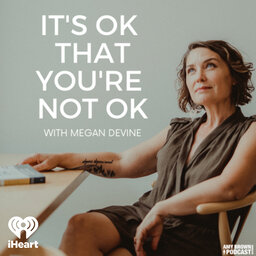Gun Violence, Graphic Imagery & The Washington Post; with Nelba Márquez-Greene
Recently The Washington Post released graphic images, videos, and audio recordings from mass shootings, in a report called “Terror on Repeat.” Should news outlets attempt to push awareness through the use of graphic imagery? If so, do survivor families have the right to refuse to let photos of their friends or family members be released?
The answer, of course, is complicated. Complexity and nuance can be hard to find in the news and social media. Like so many things, the real answer comes down to sovereignty: the rights of the people directly involved to make choices about what actions are taken, and to what end.
In this special encore episode, Sandy Hook parent survivor Nelba Márquez-Greene and I discuss what cries of “release the photos!” means to survivors who have already had their private lives invaded, and their peoples’ images co-opted for others’ use.
That’s just part of our conversation, and all of it is timely: we discuss what it’s like to live such a public grief, and what it means to find joy - and hope - in an often violent world. Don’t miss it.
In this episode we cover:
- The importance of telling your own story in the ways you want to tell it (no matter who demands a soundbite)
- Supporting each other: the difference between an “inside the house” friend and an “on the porch” friend.
- Why no single form of advocacy for survivors is right for all survivors
- Where your money goes when you donate funds in the wake of a tragedy
- What to do when the next act of gun violence happens
Looking for a creative exploration of grief? Check out the best selling Writing Your Grief course here.
Follow our show on Instagram, Facebook, Twitter, and TikTok @refugeingrief and @itsokpod on TikTok. Visit refugeingrief.com for resources & courses.
About our guest:
Nelba Márquez-Greene is a licensed Marriage and Family Therapist specializing in grief, loss, trauma and their impact on individuals and systems. What her official bio doesn’t say is that her child was murdered at Sandy Hook Elementary. Find her at thisgrievinglife.com. Follow her on Instagram and Facebook @anagraceproject
About Megan:
Psychotherapist Megan Devine is one of today’s leading experts on grief, from life-altering losses to the everyday grief that we don’t call grief. Get the best-selling book on grief in over a decade, It’s Ok that You’re Not OK, wherever you get books. Find Megan @refugeingrief
Additional resources:
There are many organizations fighting to end gun violence. Here are just a few:
Moms Demand Action, Change the Ref, and Brady United.
As Nelba suggested, if you want to support survivors of gun violence, find ways to support survivors in underserved communities, especially if their tragedy didn’t make the national news.
Want to talk with Megan directly? Join our patreon community for live monthly Q&A grief clinics: your questions, answered. Want to speak to her privately? Apply for a 1:1 grief consultation here.
Check out Megan’s best-selling books - It’s OK That You're Not OK and How to Carry What Can’t Be Fixed
Books and resources may contain affiliate links.
 It’s OK That You’re Not OK with Megan Devine
It’s OK That You’re Not OK with Megan Devine


